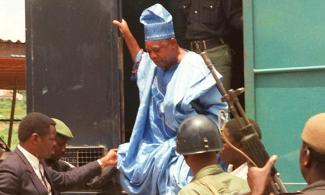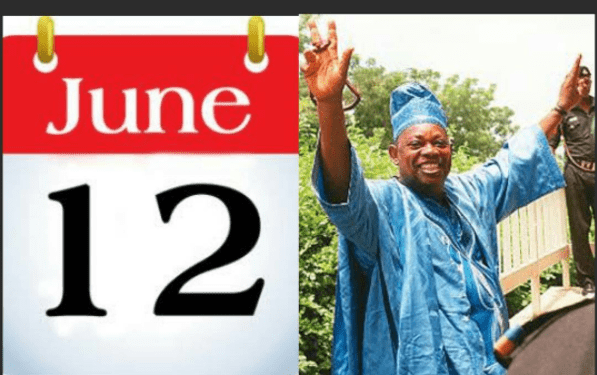
 June 12 stands as a potent symbol of democracy in Nigeria, representing the country’s struggles and triumphs in its quest for a truly representative and democratic governance. This date marks the anniversary of the 1993 presidential election, widely regarded as the freest and fairest in Nigeria’s history. However, the annulment of the election results by the then military regime triggered widespread protests and became a watershed moment in Nigeria’s political evolution.
June 12 stands as a potent symbol of democracy in Nigeria, representing the country’s struggles and triumphs in its quest for a truly representative and democratic governance. This date marks the anniversary of the 1993 presidential election, widely regarded as the freest and fairest in Nigeria’s history. However, the annulment of the election results by the then military regime triggered widespread protests and became a watershed moment in Nigeria’s political evolution.
The Political Significance of June 12
From the perspective of political analysts, June 12 is significant because it underscores the inherent contradictions in Nigeria’s democratic process. The annulled election, presumed to have been won by Moshood Kashimawo Olawale (M.K.O.) Abiola, highlighted the intense struggle between military autocracy and civilian democratic aspirations. The political dynamics of the time were marked by ethnic tensions, economic instability, and a pervasive mistrust of the military government.
Political analysts view June 12 as a turning point that galvanized the pro-democracy movement in Nigeria. The election, annulment, and subsequent resistance provided a rallying point for activists, politicians, and ordinary citizens who demanded an end to military rule and the establishment of a democratic government. This period also saw the emergence of influential civil society organizations that played a crucial role in advocating for democratic reforms.
Historical Context and Relevance
Historians consider June 12 a critical juncture in Nigeria’s post-colonial history. The 1993 election was the culmination of a transition program initiated by General Ibrahim Babangida, aimed at returning the country to civilian rule. The election was unique in its conduct, featuring open ballot systems and non-partisan structures, which minimized electoral malpractices.
The annulment of the results by Babangida’s regime was perceived as a betrayal of the popular will, sparking widespread condemnation and protests. Historians note that the events of June 12 and the subsequent political crisis were instrumental in discrediting military rule and strengthening the resolve of Nigerians to achieve democratic governance.
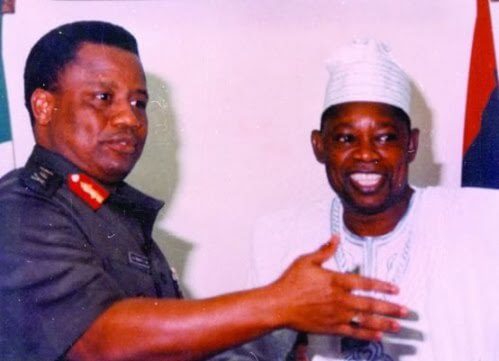
June 12 is not just a date; it is a reminder of the sacrifices made by many Nigerians in their pursuit of democracy. The struggle that ensued following the annulment laid the groundwork for the eventual return to civilian rule in 1999, marking the beginning of Nigeria’s Fourth Republic.
Citizen Perspective: The Struggle for Free Enterprise and Free Speech
For the average Nigerian citizen, June 12 represents a struggle for fundamental freedoms, including free enterprise and free speech. The annulment of the election was seen as a denial of the people’s voice and an affront to their democratic rights. Citizens across various ethnic and social strata united in their demand for the restoration of the election results and the establishment of a democratic government.
The protests and civil disobedience that followed the annulment were characterized by a robust demand for freedom of expression and the right to participate in the political process without fear of repression. These movements underscored the importance of free speech as a cornerstone of democracy and highlighted the citizens’ desire for a political system that allowed for economic and political freedoms.
The Present Political Clime and Lessons Learned
In the present political clime, the lessons of June 12 remain pertinent. Nigeria’s democracy is still evolving, grappling with challenges such as electoral integrity, political corruption, and ethnic divisions. However, the resilience shown by Nigerians in the face of these challenges is a testament to the enduring spirit of June 12.
One key lesson from June 12 is the importance of credible elections. The legitimacy of any democratic government hinges on the conduct of free, fair, and transparent elections. Ensuring the independence of electoral bodies, safeguarding the voting process from manipulation, and promoting active citizen participation are crucial steps towards strengthening democracy.
Another lesson is the need for inclusive governance. The events of June 12 demonstrated the power of unity across ethnic and regional lines in the pursuit of common democratic goals. Building a cohesive national identity that transcends ethnic and religious differences is essential for the stability and progress of Nigeria’s democracy.
Future of Nigeria’s Democracy in the 21st Century
Looking ahead, the future of Nigeria’s democracy in the 21st century will depend on several factors. First, there must be a continuous effort to deepen democratic institutions and processes. This includes strengthening the rule of law, promoting transparency and accountability in governance, and fostering a vibrant civil society.
Second, economic reforms are crucial. A stable and prosperous economy provides a foundation for democratic stability. Policies that promote economic diversification, reduce poverty, and create job opportunities will enhance the citizens’ faith in the democratic system.
Third, addressing security challenges is vital. Insecurity, whether from terrorism, banditry, or ethnic conflicts, poses a significant threat to democratic governance. Effective security policies that ensure the safety of all citizens are necessary for sustaining democracy.
Correcting the Past and Positioning Nigeria in the Comity of Nations
To correct past mistakes and position Nigeria favorably in the global arena, several actions are needed. Reconciliation efforts that address historical injustices and foster national unity are important. This includes acknowledging past wrongs, promoting inter-ethnic dialogue, and implementing policies that ensure equitable distribution of resources and opportunities.
Educational reforms are also critical. An informed and educated populace is essential for a thriving democracy. Investing in education and promoting civic education will empower citizens to participate actively in the democratic process.
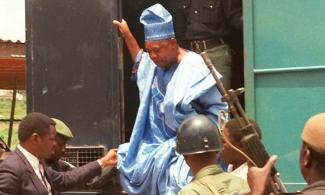
Furthermore, Nigeria must continue to engage with the international community, adopting best practices in governance and upholding international standards of human rights and democratic principles. This will enhance Nigeria’s image and strengthen its role as a leader in Africa and beyond.
June 12 as a Rallying Point for Unity
June 12 has the potential to serve as a unifying symbol for all aggrieved ethnic groups in Nigeria. The inclusive nature of the 1993 election, where a Muslim candidate from the South and a running mate from the North won widespread support, demonstrates the possibility of unity in diversity. Commemorating June 12 as Democracy Day, as officially recognized by the Nigerian government, can serve as a reminder of the collective aspirations for a just and equitable society.
By embracing the spirit of June 12, Nigeria can build a national identity that celebrates diversity while promoting common values of democracy, justice, and equality. This requires deliberate efforts to include all ethnic groups in the political process and address their unique concerns.
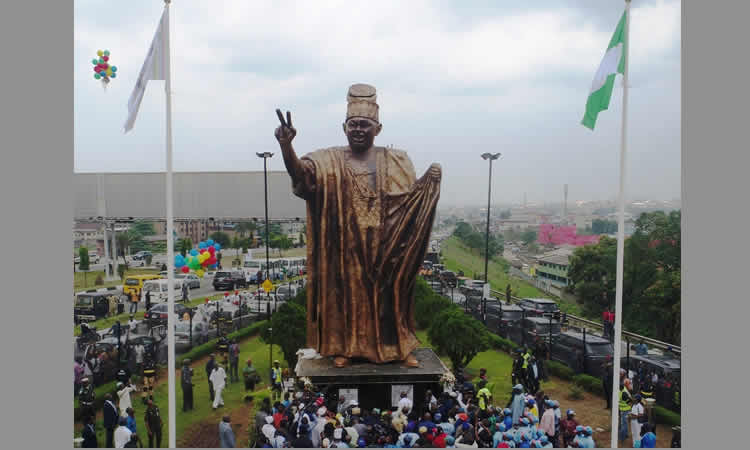
Conclusion: Elements of Democracy and Solutions for Bringing Dividends to the People
The core elements of democracy include free and fair elections, rule of law, respect for human rights, and active citizen participation. To bring the dividends of democracy to the average Nigerian, several solution-based approaches are necessary:
1. Electoral Reforms: Ensuring that elections are free, fair, and transparent will restore citizens’ faith in the democratic process and ensure that their voices are heard.
2. Good Governance: Promoting transparency, accountability, and anti-corruption measures will enhance public trust in government institutions.
3. Economic Development: Implementing policies that promote economic growth, job creation, and poverty reduction will improve the quality of life for all Nigerians.
4. Education and Civic Engagement: Investing in education and promoting civic engagement will empower citizens to actively participate in the democratic process and hold their leaders accountable.
5. Security: Addressing security challenges through effective policies and ensuring the safety of all citizens is crucial for the stability of democracy.
By addressing these key areas, Nigeria can realize the full potential of its democratic aspirations and ensure that the sacrifices of June 12 are not in vain. The legacy of June 12 can serve as a guiding light, inspiring future generations to strive for a more just, equitable, and democratic Nigeria.
By : Jide Adesina
Pictures: Internet source


